In Korea, “we” often means “I, bonded by jeong, to you,” whereas in English, “we” just represents any multiple “I’s.” (Chung & Cho, 1977, p. 3)
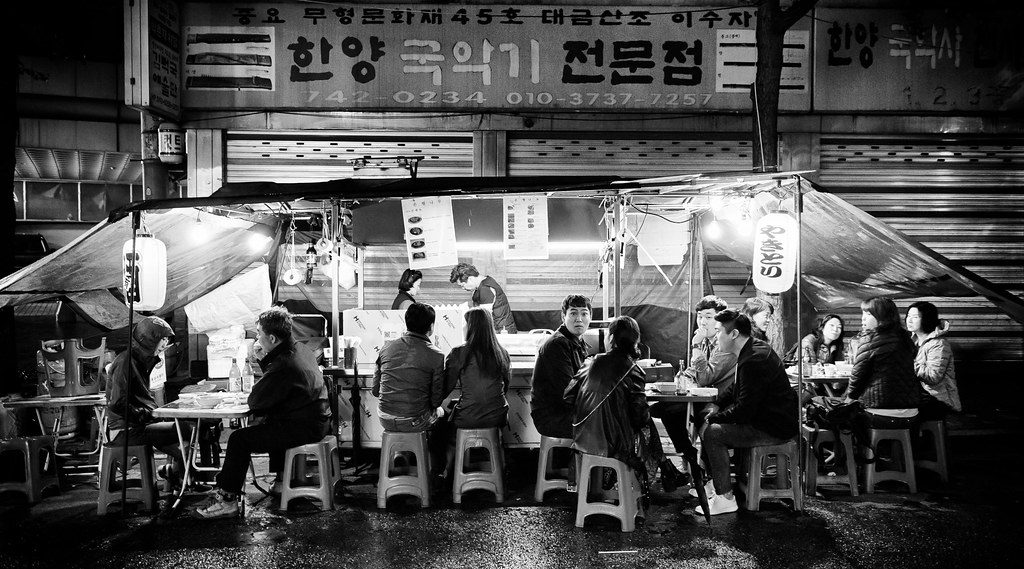
Ever watched a South Korean drama and felt as if having eaten several pieces of Choco Pie? Well, since you are here, chances are you have unapologetically enjoyed many cinematic gourmets made in South Korea, but apart from bewitching actors in stylish outfits bringing to life fresh stories and compelling plots, Korean dramas have one more important asset that makes them so distinguishable and appealing; a certain heartwarming effect that has less to do with the customary sweet couple moments or cute womances and bromances and more with what is known as jeong (정) or the invisible Korean hug that binds people together (Tudor, D., 2018, p. 92), a very specific type of connection that is seemingly impossible to be contained in just one English equivalent.
Whilst dramas are just one of the easiest ways through which someone unfamiliar with Korean culture can get a sense of the deep implications of jeong infused relations, another way to look at it is to observe for instance the response that Koreans have when facing difficult times, the most recent case being the 2020 coronavirus pandemic. It is widely acknowledged that testing, tracing and treating along with transparency and accountability had a major role in South Korea’s successful approach, but as many have attributed it to the community oriented tradition of East and Southeast Asian cultures, some suggests rather than cultural tropes, what made it an effective method was competent leadership (Park, Nathan S., 2020), this being the main reason why people maintained a calm attitude and readily complied with government’s measures. Nonetheless, “bonded by jeong, collective efforts toward a common goal, overcoming crises, and survival are relatively frequent scenes among Koreans or Asians”(Chung & Cho, 1997, p.2). But it is jeong really a specifically Korean thing?

The perceived imperative to help one’s friend is stronger than in other cultures . (Tudor, D., 2018, p. 94)
The origin of jeong has to do with the Chinese character 情 (qing) which stands for emotion or feeling, and interesting enough, similar concepts (with slightly different connotations) can be found in Chinese and Japanese, namely guanxi – rather emphasizing personal benefits as opposed to jeong in which the individual is committed to the community and amae – were one counterpart is more privileged than the other, while jeong values reciprocity (Yoon, K., 2016, p. 7). Despite this, their Korean correlative seems to encompass such a wide variety of emotions and meanings that it “is not entirely definable even in the Korean language; it is ambiguous and amorphous. The best description is that jeong has multiple faces.”(Chung & Cho, 1997, p. 2) At the same time, “jeong refers to the emotional and psychological bonds that join Koreans; it permeates all levels, dividing the world into different degrees of us/we versus them” and “refers to mixed feelings of fondness, caring, bonding, and attachment that develop within interpersonal relationships.”(Chung & Cho, 2006, p. 47), hence the heartwarming effect it has on those who encounter or experience it.
Jeong creates a kind of unwritten contract, promising help whenever is needed. (Tudor, D., 2018, p. 94)
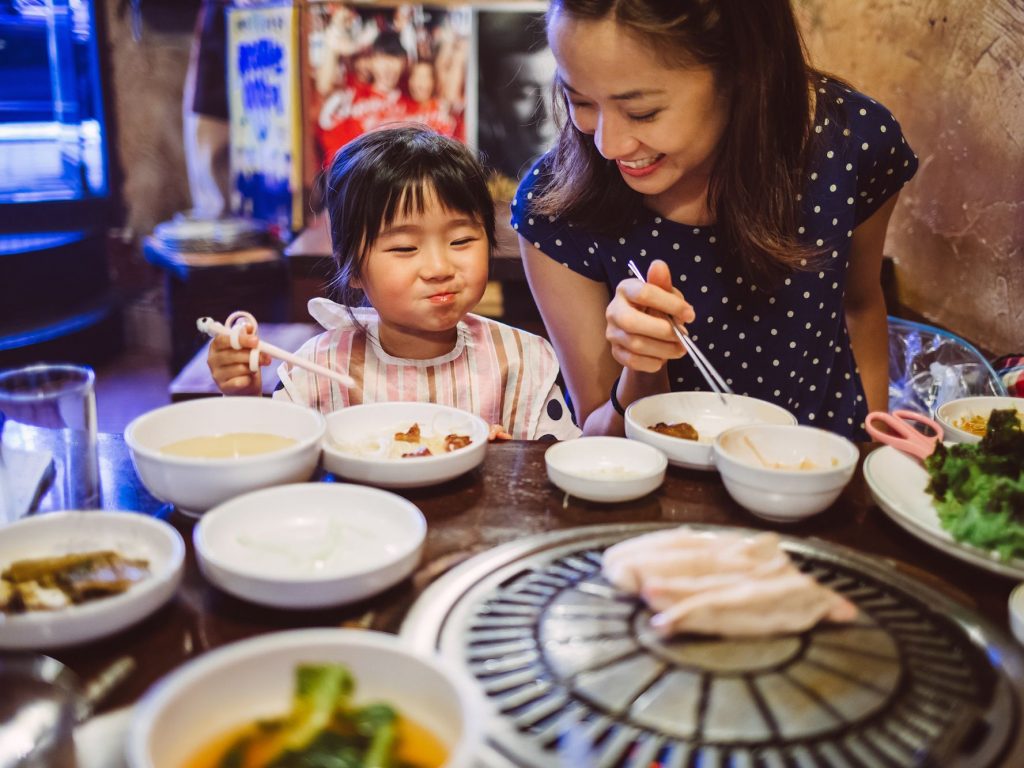
via Getty Images
How does jeong look and feel like?
A key element in a jeong relation is unconditional and unreasonable giving and it starts with the first way a newborn relates to the world around it, that is the care and warmth with which the mother surrounds her child – mojeung (모정) and the total sense of trust it inspires.
It is not incidental that jeong is seen as a “symbolic space that represents Koreans’ human relations, drawing on family-like bonding”(Yoon, K., 2016, p. 4), of course that we can associate it with the long history of Confucian influence, since family relations are the fundamental example of all type of human relations and the ultimate virtue of late Confucianism is filial piety – taking care of one’s parents, honouring them and generally having a good conduct, but at the core of jeong lies a very Korean notion that has probably a lot to do with the unique geographical, historical and social contexts in which Korean nation took shape: – woori-seong (우리성), we-ness, as in the past it was more convenient, and most of the times the only option available, to rely in different matters on help and support from people with whom one had a shared past and a personal relationship such as relatives and people met through military training or education (even if not a friend, even if one rather dislikes that person – miun jeong/미운 정), a type of love-hate relationship)
Jeong is seen as attachment and sense of belonging born in a relatively small group of people, it usually involves two or more people, and not only that jeong is meant to last over a long period of time, but one cannot really choose to start or to stop feeling it anymore, mainly because when it comes to it instead of “I feel jeong for you” one says 정들다 – jeong deulda translated as “jeong has permeated” and meaning to become fond or to get attached to. More than an emotion felt within, it is something that happens in between people, as one’s self is not the centre of jeong, but rather one of the connection points of a collective emotion:
Woori (우리) has strong nuances of relatedness, friendliness, affection, commonality, homogeneousness, and ultimately belonging. This jeong-based “we-ness” is characterized as unconditional, non-contractual, non-calculable, non-pragmatic, unrealistic, and illogical. (Chung & Cho, 2006, p. 49)
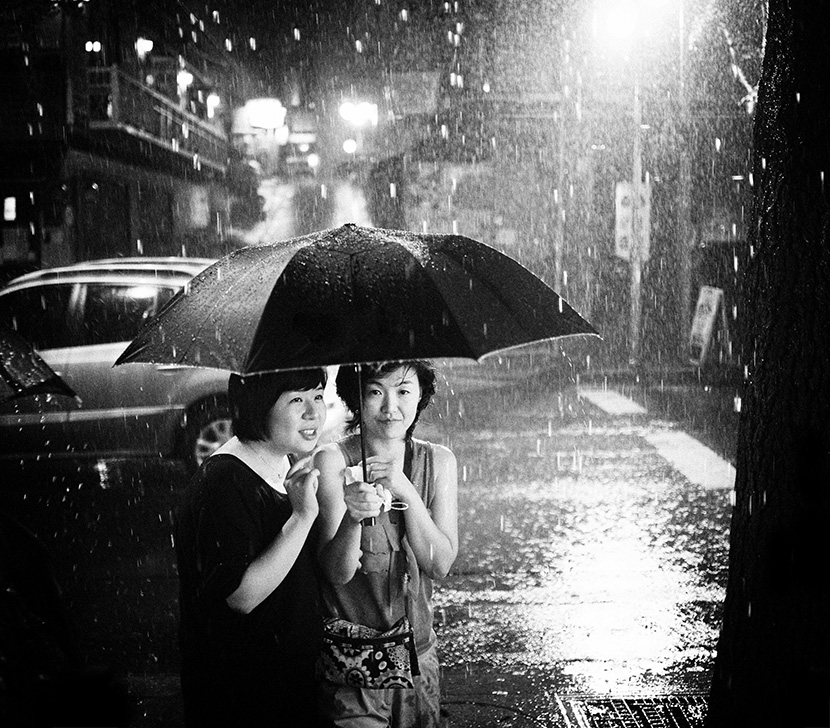
Image by Eric Kim via leica-camera.blog
Even the country itself is rather referred to as woori nara (우리 나라) – our country, the same goes for my mother/father (우리 어머니/아버지), my son (우리 아들) and so on. But this sense of belonging exists at the same time with a sense of distance and estrangement, as there is no us without some others that are strangers and do not belong to the group – these are called nam (남). A common question is Woori-ga nam-i-ga? (우리가 남이가 ?) meant to establish a rapport between people (Are we others? Are we not related? Or, on the contrary, are we actually bonded by jeong?).
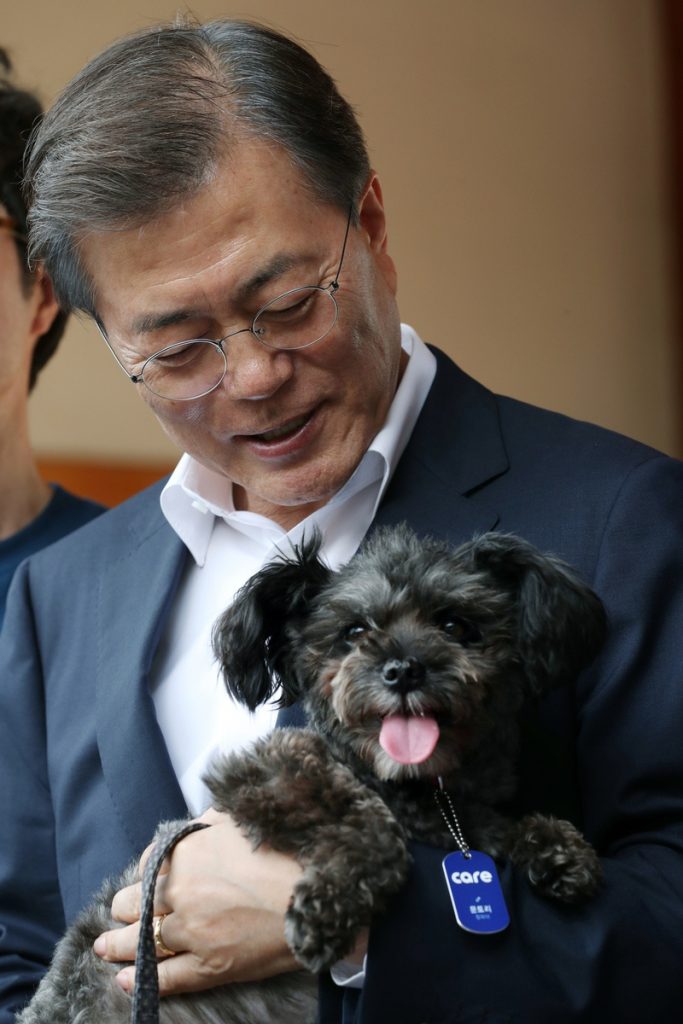
Source: sbs.com.au
Although it is mainly about human relations, it can also concern animals, certain objects or even places to which someone is deeply attached. It is for instance what can be felt towards a beloved pet with whom one spent many years or towards a shirt or even a pen that has been with us during a really difficult exam in college, but also when signing our first work contract, one can even feel tied by jeong to an old phone, though dated or almost broken, it is difficult enough to give up something that holds so many memories, the thought of a specific city, or the corner of a street can also awake a sense of familiarity, comfort and warmth, all related to jeong.
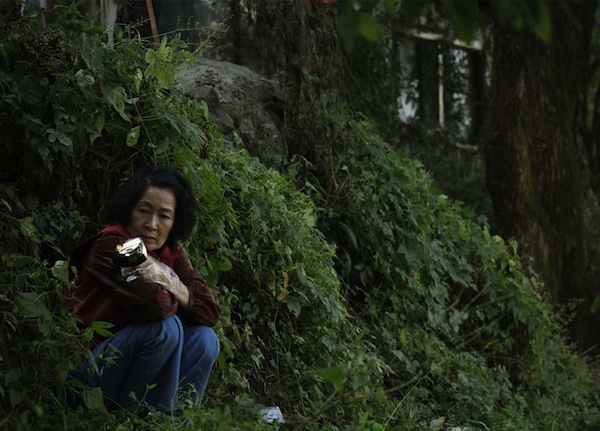
Mother (2009), dir. Bong Joon Ho
Source: AsianWiki.com
Since jeong is such an unselfish type of emotion, it is only natural to ask what happens when someone is betrayed and the bond is broken as it is sometimes only human to happen. The strong feeling of jeong is then replaced by deep resentment, sorrow, consuming anger and regret, namely han (한), another feeling particularly encountered only in Korean culture.
It inspires people to do more for each other than they know makes rational sense (Tudor, D., 2018, p. 94)
Despite all the good emotions encompassed by jeong, the fact that “the manifestation of jeong in a social structure and in social values is primarily through loyalty and commitment without validation, logic, or reason” (Chung & Cho, 2016, p. 2) can sometimes be incompatible with more reason-driven, business-like contexts that involve law and fairness, so that conflicts between trying to remain loyal to jeong relationship and taking a fair decision (like making a deal or offering a job) may arise. Moreover, even if the deal is not as good as the one offered by a stranger, one might feel obliged to accept it in order to maintain and honour jeong.
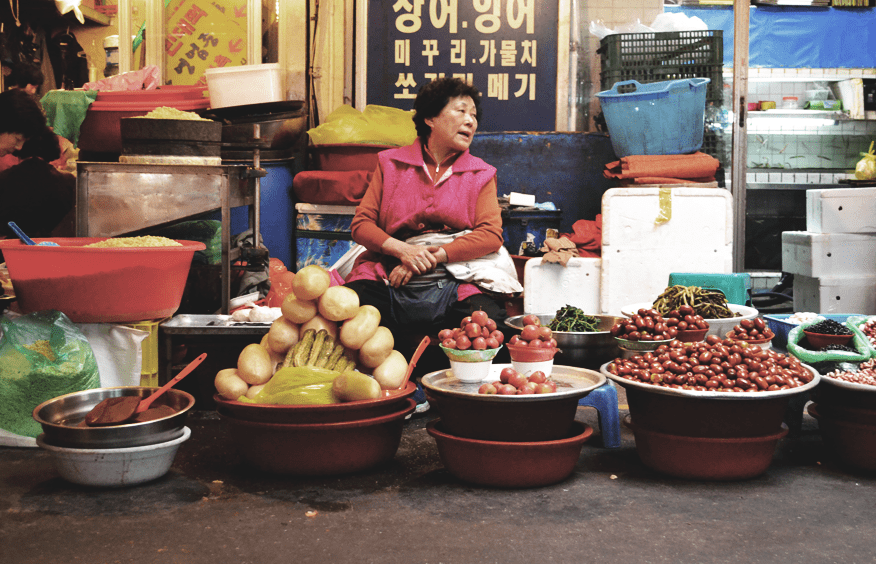
Image by Freshly Diced via Flickr
Source: theculturetrip.com
Jeong consists of generosity and sharing, being nice to other beings, and getting attached to people, animals or things. Receiving a few more fruits at the market without having to pay for them, being offered food and being taken care of – as only a mother can do – by a complete stranger, receiving an unassuming smile, offering help when needed, being kind and understanding are all manifestations of jeong. It seems what makes it truly remarkable is not the fact that is a Korean concept – as what it means is simply human and universally valid – but rather the profound way in which Korean people value it, since they are the only ones that have attached to it so many meanings and so much significance.

After all, the sweet, heartwarming effect of jeong resides mainly in the pure moments of shared kindness that can lower walls and build bridges instead.
Spiridon Ioana-Maria
Reference sources:
- Chung, Christopher K. et al. “Conceptualization of Jeong and Dynamics of Hwabyungˮ. Psychiatry Invest 2006; 3 (1):46-54. Accessed at: https://www.psychiatryinvestigation.org/upload/pdf/0502006005.pdf.
- Chung, Christopher K. & Cho, Samson. (1997). “Significance of “jeong” in Korean culture and psychotherapy”. Harbor-UCLA Medical Center. Accessed at: https://pdfs.semanticscholar.org/b492/d8398d95aadefe1cf99f3782621cf6a55cb6.pdf?_ga=2.229536796.1416478848.1588197978-305597228.1588197978
- Lee, Deva. “Finding jeong in South Koreaˮ. 19 Dec. 2013. https://matadornetwork.com/abroad/finding-jeong-in-south-korea/
- Lee, Kyung Mi. “Jeong”. 02 Nov. 2018, 12:03 a.m. https://yaledailynews.com/blog/2018/11/02/jeong/
- Park, Nathan S. “Confucianism Isn’t Helping Beat the Coronavirus”. 02 April 2020, 1:05 p.m. Accessed at: https://foreignpolicy.com/2020/04/02/confucianism-south-korea-coronavirus-testing-cultural-trope-orientalism/
- Tudor, Daniel, Korea: The Impossible Country. Tokyo-Rutland, Vermont-Singapore: Tuttle Publishing, 2018.
- Yoon, Kyong. “The Local Sociality and Emotion of Jeong in Koreans’ Media Practices. Asian perspectives on digital culture: emerging phenomena, enduring concepts. Edited by Sun Sun Lim and Cheryll Ruth R. Soriano, New York: Routledge, 2016.
Link for English subtitles: https://www.youtube.com/watch?v=_3DlFgJle7k&list=LLw_5eW1SoB6FREilg761g6w&index=65
